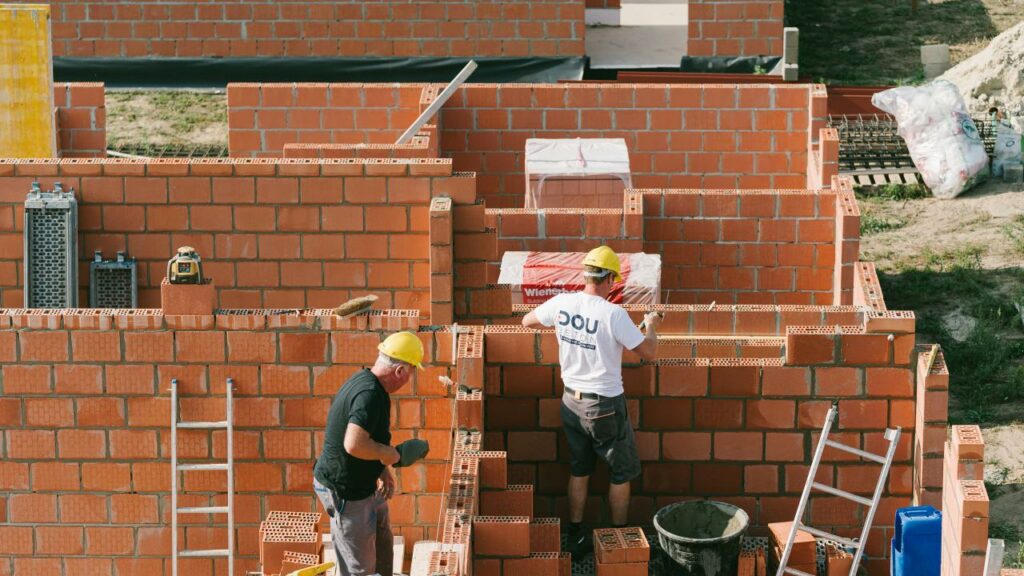The price of energy-intensive building materials, such as bricks, tiles, and cement, will continue to rise in coming months, Belgian construction federation Embuild warned in a press release on Thursday.
In April, as Russia’s invasion of Ukraine sent the price of gas skyrocketing, Belgian construction companies warned that the high costs of construction materials, which rely heavily upon natural gas, risked putting many companies out of business.
At the start of the war, 82% of contractors warned that delivery times for construction materials had increased significantly, and 44% offered quotes valid for only a few days, and some even for just a few hours.
“The price of building materials will never reach their pre-Covid level again,” Embuild warned. “What’s more, energy-intensive building materials, such as brick and cement, will continue to rise in price in the coming months.”
Since the end of 2021, the price of common materials have skyrocketed. Sand and gravel increased by 24%, brick 10%, cement 35%, glass 21%, steel 3.5%, and electrical materials by 10%. Russia is a major exporter of natural resources used in construction and industry, such as ores, stone, and precious metals.
After nine months of war, the Belgian construction sector is still advising that contractors “work with price review clauses or daily prices in their contracts because the market is still too volatile.”
Many industries set to suffer next year
This trend can be observed in many other energy-intensive industries. In June, the National Bank of Belgium predicted that the energy-intensive Belgian fishing, forestry, and chemical industries would suffer significant losses this year due to high energy prices.
While the price of many energy-intensive materials is set to rise, Embuild predicts that the construction industry will receive some relief from a drop in the cost of raw material prices.
“Building materials that depend on raw material prices will stabilise sooner and possibly fall slightly here and there,” the federation said. The cost of non-ferrous metals has dropped by 12%, wood by 17.5%, and the cost of PIR and PUR insulation has remained largely stable.
Related News
- Belgians borrow en masse in rush for energy-saving renovations
- Limburg company produces building blocks from CO2
Despite this, building material prices will “never again reach the level of 2019 or early 2020.” In Belgium, over half of Belgian construction companies have been forced to suspend projects due to problems with supply, the cost of materials, or due to the cancellation of contracts.
“You feel that there are trust problems with the customer,” Embuild CEO Niko Demeester warned in September. “We will get through it, but you notice that construction companies do not expect the problem to decrease, but rather to increase.”

